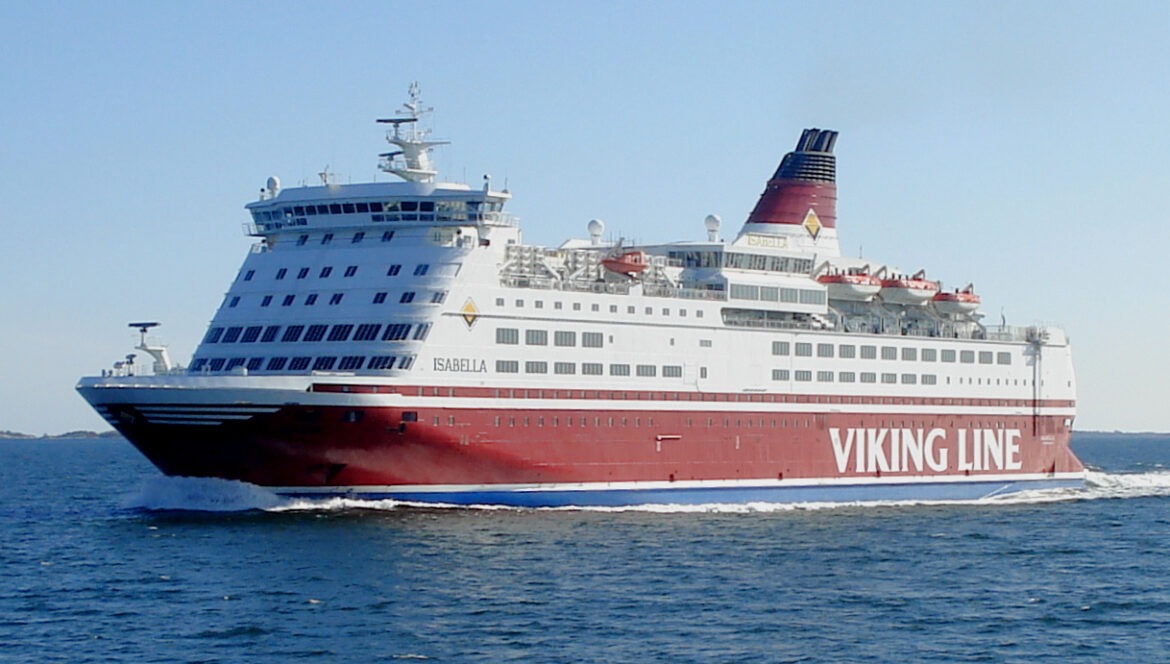By Isaac Phan Nay | The Tyee
The BC Labour Relations Board has ordered the employer to let union organizers visit workers on a Squamish-area “floatel” without a company amid a difficult organizing drive.
The floatel is a cruise ship — called the MV Isabelle X — converted to house more than 600 workers at the Woodfibre LNG project.
Since late last year Unite Here Local 40 has been trying to organize the hospitality employees, including cleaners, desk staff and cooks.
During the effort, the employer, Aramark, has required union representatives who visit the ship to be accompanied by members of its human resources team.
But in March the BC Labour Relations Board upheld an order that the employer drop its escort requirement.
The ruling was based on the principle that a union is entitled to privacy when meeting with workers in employer-provided accommodations.
It’s the latest development in an organizing effort marked by legal challenges from the union and the employer and sheds light into the challenges of organizing workers in isolated job sites.
“Workers have a right to discuss the prospects of unionizing without having their manager over their shoulder, listening to the conversation,” Unite Here Local 40 organizer Mike Biskar said. “It’s very important that workers feel that they can speak candidly.”
Meanwhile, Aramark vice president of corporate communications Chris Collom said in an email the employer is “aware of the matter and accepts the board’s decision.”
A series of employers are involved in the case. The Woodfibre LNG project is a liquified natural gas plant set to begin operation in 2027 and be run by McDermott, a company that provides engineering and construction solutions for the energy industry.
McDermott contracts with Bridgemans, a marine accommodations company, to run the floatel for its workers. In turn, Bridgemans contracts Aramark to run its hospitality services.
Aramark employs about 60 workers on board under its brand name LandSea Camp and Catering Services. Aramark is a U.S.-based corporation with about $20 billion USD in revenue.
Biskar said the hospitality workers on board reached out to the union late last year with concerns about their working conditions.
“They were concerned about job security and their employers’ use of the temporary foreign worker program, and they asked how to make the jobs better and bring them up to the union standard,” he said.
Biskar said hourly wages for workers on the boat were, on average, up to $8 less than hospitality workers at other work camps the union represents.
He offered “housekeepers” as an example — which he said make about $19 per hour. That’s on the low end of the provincial range of $17.40 to $25.28 per hour for light-duty cleaners.
Biskar added a large portion of the workers on board the ship were part of the temporary foreign worker program.
Publicly available records show positive labour market impact assessments — documents necessary for employers to hire foreign workers — were approved for at least 34 positions during 2024.
The union asked to send representatives to the floatel to meet with the workers. Last November, they went on board.
According to court documents, Aramark had a human resources coordinator and a manager of human resources escort union representatives on the vessel and into a meeting room.
The two HR representatives stayed in a nearby room while the union spoke with employees.
Early this year, the union asked for a second visit — this time, without being escorted.
“It really makes it more challenging to have confidential conversations with workers about organizing when there’s managers in the room next door,” Biskar said.
The board initially agreed and in February ordered the employer not to put a full-time escort on the union representative during the visit, and to ensure no management waited in a room near where unions met with employees.
Aramark, Bridgemans and McDermott disagreed and appealed. The employer called the decision “one-sided” and prioritized union organizing to the detriment of Aramark’s rights.
But in her decision board chair Jennifer Glougie said the employer did not prove union representatives need to be escorted.
“The employer does not say how the presence or absence of an escort would ameliorate its concerns,” Glougie said.
“A union is entitled to privacy when meeting with employees.”
She added it’s the employer’s responsibility to justify an escort requirement and the onus is not on the union to prove it isn’t necessary. Glougie upheld the previous ruling.
Now, the union is scheduling its second visit to the Squamish floatel.






